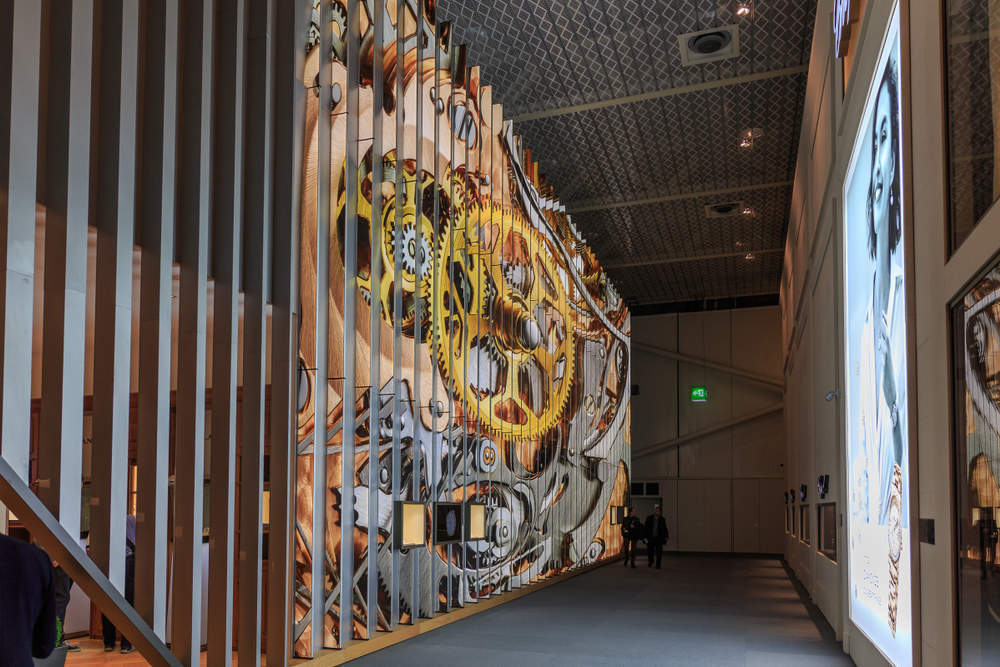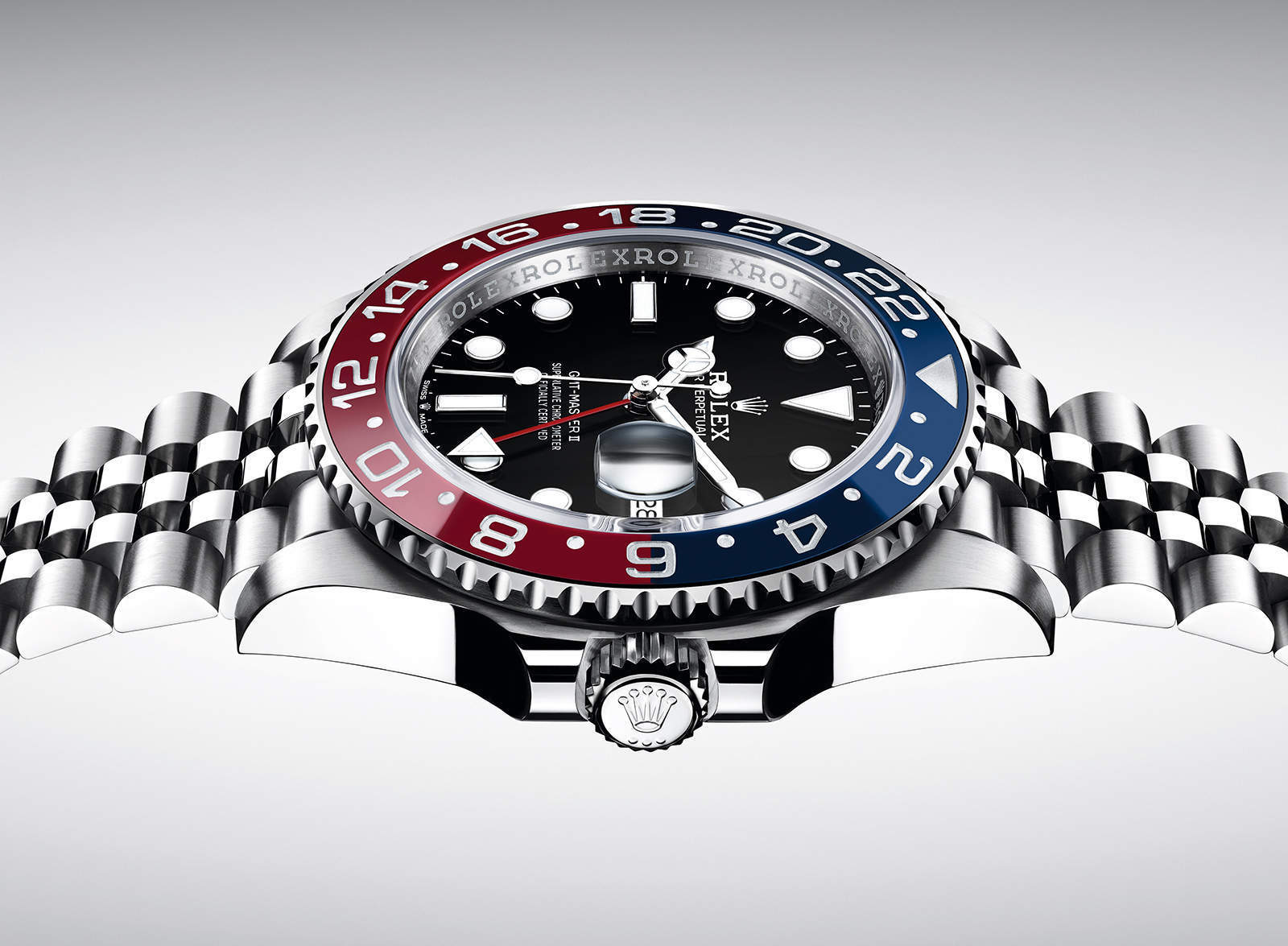
For those with a predilection for horology, there are few events more exciting than Baselworld 2018.
Held in the small Swiss city of Basel, the event is a celebration of watches and time-keeping. Watchmakers from around the world share new designs, innovations, and styles.

Access deeper industry intelligence
Experience unmatched clarity with a single platform that combines unique data, AI, and human expertise.
There are dozens of types of watches on display, though the show mostly focuses on mechanical watches — those that need to be wound by hand.
However, there are also kinetic watches powered by the movement of a wearer’s wrist, and a few battery powered options.
Seeing as the festival of watchmaking hit its 101st anniversary this year, many reports from the event suggest it is looking forward to the next generation of watch-owners.
Designs were offered at cheaper-than-usual price points, made from sustainable materials, and aimed towards a younger audiences.

US Tariffs are shifting - will you react or anticipate?
Don’t let policy changes catch you off guard. Stay proactive with real-time data and expert analysis.
By GlobalDataSafe to say, for watch lovers, there was plenty of news to be seen and heard.
Tag Heuer boss lashes out at tech-shy watch snobs
Jean-Claude Biver, the chief executive of Tag Heuer, Hublot, and Zenith criticised snobbish attitudes towards smart watches.
He said that Apple, Samsung and other smart watch producers should be welcomed to Baselworld:
The Apple watch is a watch: it’s a bracelet that gives you information: hours, minutes, the date.
But there are too many people here [in Basel] who don’t think it’s a watch. There are people here who say, if you’re not Swiss you can’t be here. It’s like telling, say, Kia they can’t come to the Geneva Motor Show because they are South Korean.
Apple and Samsung are promoters of the watch because they teach people to wear something on their wrist.
Imagine a generation who did not wear any watch. It would be much more difficult for us to sell them something.
People are likely to take notice of Biver’s comments. The 68-year-old luxury retail boss is widely credited with reviving the fortunes of the Swiss watch-making industry.
In the 1970s and ’80s, Swiss watches fell out of favour due to the increasing popularity of Japanese-made battery powered options.
Through licensing deals and product placements (notably in James Bond films) Biver helped revitalise the popularity of Swiss watches.
Apple and its sale of some 20 million smart watches is widely considered to be the next major threat to Swiss watch-making.
As a result, many exhibitors shared hybrid designs which featured smart and mechanical elements combined into a single timepiece.
Biver voices concerns about the US-China trade war
In addition to his comments about smart watches, Biver also took a moment to discuss the US-China trade war. He considers it more likely to cause damage to the luxury watch sector as smart watches:
When the mood changes to pessimism, the luxury sector suffers… At this moment, we are on the verge of something that could be damaging.
The burgeoning trade war has been looming for months as President Donald Trump threatens to take a more isolationist approach to world trade than his predecessors.
This has led to large tariffs placed on Chinese imports to America and vice versa.
Biver noted “China has been the driving force in the recovery” of the luxury sector — no one in Switzerland wants a trade war.
Rolex relaunches a classic
As one might expect there were literally hundreds of watch designs unveiled. The entire list of watches shown off at Baselworld can be found here.
However, there’s one timepiece which has notably grabbed more attention than others: the Rolex GMT-Master II.
This watch is a modern remake of the famous so-called Pepsi Rolex GMT Master which originally launched in the 1950s.
The watch was the first to feature the GMT dual time-zone function. It came in many variants but the most famous was the Pepsi design. This watch’s bezels were red and blue coloured, and it had a black face.
Since then, the watch has been re-released a few times. However, since the original, all the redesigns have used ceramic bezels. This has irked collectors who’d prefer to use the watch as a travel tool.
After decades of pressure, Rolex has finally announced it will re-release the Pepsi design in steel. Watch fans are thrilled.

Google rename the Android Wear line
While none of the smart watch manufacturers made a physical appearance at Baselworld, their presence was felt in more ways than one.
Just ahead of the trade show, Google announced that it was re-branding its Android Wear line. The products will henceforth be known as Wear OS.
A shrinking number of exhibitors
While Patek Philippe, Seiko, Tag Heuer, and Rolex all unveiled new designs at the event, overall the number of exhibitors was “down by more than 50% compared to a few years ago”, according to Watch Pro managing editor, Rob Corder.
Still, it’s not all bad news.
According to Corder there was a decidedly upbeat, positive atmosphere at Baselworld 2018.
Corder writes that there more visitors than usual at Baselworld 2018 too:
The organiser has reported that the show had 8% more visitors in its first two days (Thursday and Friday) than at the same time last year.
I can tell you that Saturday was dramatically more busy.
This could be down to favourable market conditions in Swiss watch making, said Christophe Roulet of Haute Horologie who writes:
After an arduous two years, the Swiss watch industry turned a corner in the second half of 2017 when exports rose by 4.9%.
Figures for January and February of this year are even more promising, with shipments climbing in excess of 12% and strong comebacks in China (34%), Hong Kong (28%) and the US (11%), which are the top three markets for Swiss watch brands.
Still, Roulet concedes that Baselworld needs to adapt to survive:
The fundamental question, nonetheless, is the purpose fairs such as Baselworld serve in a digital age.
No-one is contesting the need for well-intentioned individuals to meet face to face, any more than the importance of being able to touch and feel products whose principal virtue is their emotional appeal.
But anything beyond this basic truth is subject to caution. Should we still be building gargantuan booths that take a month to put together to show watches, most of which were designed decades ago?







